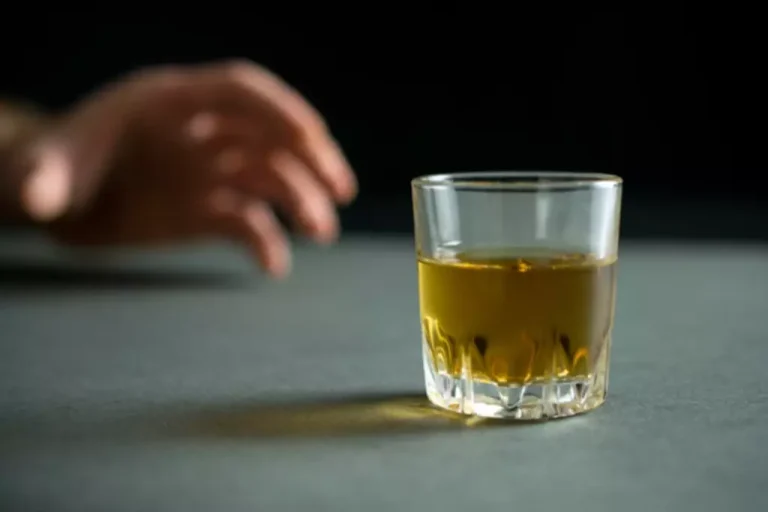
In addition, she is a wife, mother, and the successful founder and CEO of Amy Myers MD ®. There’s a bit of truth to the phrase, “sleep it off.” Sleep allows your body to rest and recover. Sleeping won’t physically remove alcohol from your system, however, it will give your body how to flush alcohol out of your system in 24 hours time to rest so it can effectively remove alcohol from your system. What equates to 1 drink depends on the size and type of alcoholic drink you have. You may be underestimating how much you drink because you (or your generous friend) aren’t using standard measurements.
- After drinking a lot of alcohol, you might feel too nauseous to eat.
- Men may metabolize alcohol more quickly than women since they have higher levels of alcohol dehydrogenase (ADH) in their stomach and liver.
- When the 23-year-old New Yorker asked her doctor about the experience, he suggested she cut back on drinking if it was making her symptoms worse.
- However, the early signs of liver damage are subtle, and the initial stages of liver disease are “silent,” or asymptomatic.
- Our program is accessible nationwide, allowing you to receive assistance from the comfort and security of your home.
Abdominal Pain and the Liver
The longer answer is that you can speed up how quickly your body processes alcohol or how quickly you get over a hangover. Doing that will mean understanding how your body processes alcohol and what impacts how quickly it does so. Alcohol slows down the body’s central nervous system, which affects major systems in the body. During the course of drinking, alcohol’s effects can disrupt your brain’s natural chemical balance as well as weaken the body’s systems. All of these issues can impact how long it takes to get alcohol out of your system.
Short-Term Effects of Alcohol

The experience of withdrawing from alcohol can be uncomfortable and difficult. Some people may relapse, or drink alcohol again, to relieve the symptoms. The organ breaks down the alcohol into acetaldehyde, a chemical the body recognizes as toxic. Acetaldehyde metabolizes into carbon dioxide, which the body can eliminate. Then, acetaldehyde is further broken down to another less active byproduct called acetate. From there, the acetate is broken down into water and carbon dioxide for easy elimination.
How Long Does Alcohol Stay in Your System (Blood, Urine and Saliva)?
If you drink excessive amounts of water it can lead to water intoxication or poisoning, which affects brain function due to the swelling of cells, including brain cells. This swelling increases pressure within the brain, leading to symptoms like confusion, drowsiness, and headaches. In severe cases, it might result in high blood pressure and a slowed heart rate. If you’re a heavy drinker, you may need to wean off alcohol to let your body adjust. If you’re experiencing severe symptoms of alcohol withdrawal, be sure to talk to a healthcare provider.

Incorporating regular exercise into your routine not only aids in flushing out alcohol but also improves overall well-being. It supports liver function and enhances the body’s ability to recover from the effects of alcohol consumption. So next time you indulge, remember that a workout session could be just what you need to help eliminate those lingering traces of alcohol from your system effectively. According to National Institute on Alcohol Abuse; While water itself doesn’t directly flush alcohol out of your system, it plays a crucial role in the detox process. Rehydrating by drinking water can alleviate the symptoms of dehydration, such as headache and dizziness, but it does not speed up the metabolism of alcohol in your liver. Incorporating Vitamin B-rich foods into your diet after alcohol consumption can support your body’s detoxification processes and help mitigate the negative effects of alcohol.
- While certain techniques may help a person feel more awake, they will not eliminate alcohol from the blood more quickly and so will not lower the BAC level.
- Zinc deficiency can hinder the effectiveness of hepatic enzymes that break down alcohol, which intensifies and prolongs the effects of alcohol intoxication.
- In low to moderate amounts, alcohol can have a euphoric and relaxing effect.
- All of these calories mean that frequent drinking can lead to relatively easy weight gain.
- You can expect traces of it to remain for up to 80 days, but there are a few techniques you can try to help nature on her way a little faster.
How to Lose 10 Pounds in Three Days

Don’t Forget to Clean Your Liver
